Microsoft is nowhere near death's door

I am both a Microsoft fanboy and hater, depending on which day I read comments from our BetaNews faithful. The truth be known, I consider myself neither. I would say it this way: I am a fanboy of what works and is useful to me and hater of everything on the opposite side of that line. I use products from many manufacturers, but yes, Microsoft powers all of my home computers, save the server, which is FreeBSD. Google is also a big part of my daily life, as is Adobe and many lesser-knowns.
For two days now, debate rages across the Internet about an analyst's content that Microsoft could be irrelevant within four years. I could do nothing but laugh when I read this. This revelation derives from Gartner report that states: "While there will be some individuals who retain both a personal PC and a tablet, especially those who use either or both for work and play, most will be satisfied with the experience they get from a tablet as their main computing device". Some individuals? By that, do you mean those who have jobs?
'Slightly closed Android ecosystem could be reality by the end of 2015'
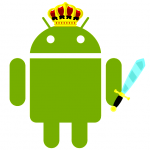
That's the prediction Aapo Markkanen, ABI senior analyst, makes today. It's the right call, as Larry Page starts his third year returning as Google CEO. Page resumed duties on April 4, 2011, and the company's direction took a hard turn. Business is more aggressive, altruistic goals less and so-called openness a waning thing. As I asserted a year ago, "Google has lost control of Android". That Page and Company would try to wrestle back control is no surprise.
Facebook Home is good reason. The user interface debuting April 12 takes over the more app-centric Android homescreen, putting the social network first before anything else, including Google+. Facebook's OEM program could put Home on many more devices. HTC already is on board with the First smartphone. Then there is Samsung, which during fourth quarter accounted for 42.5 percent of all Android handset sales, according to Gartner. TouchWiz, which gets a big update with forthcoming Galaxy S4, is the user experience -- not that determined by stock Android. These are but two examples of many.
T-Mobile starts taking iPhone 5 preorders
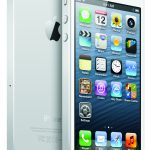
One week from today, Apple's smartphone goes on sale from the nation's fourth-largest carrier. But you can order now. The 16GB iPhone 5 is available with T-Mobile USA's new Simple Choice, no-contract plan. The device is $99.99 upfront, plus tax, and $20 per month for 24 months -- or $579.99 outright. Full price elsewhere: $649. The 32GB is $199.99 and the 64 gigger $299.99 upfront and 24 monthly payments, or $679.99 and $779.99 outright, respectively. Full price elsewhere: $749 and $849.
By several measures, T-Mobile offers the most-affordable iPhone 5 around, but it's the odd duck of the flock. Apple only sells devices for AT&T, Sprint and Verizon from its online and retail stores, which is advantageous sales placement. Perhaps T-Mobile's status will change after official sales start, but I suspect the carrier will join regionals selling iPhone in the backwater. C`mon, none of the big three would want T-Mobile's model listed alongside theirs for about $100 less.
With its new video calling feature can Vonage Mobile really take on Skype? [Q&A]

On Tuesday, Vonage introduced free video calling into its mobile app for iPhone and Android, rounding out a suite which already offers features like free app-to-app calls, texts, photo and location sharing, as well as international calling.
I chatted to Nick Lazzaro, Vonage’s SVP Product Development, Information Technology and Managing Director Mobile Services, about the new addition, the company’s plans for the future, and what he thinks is next for the mobile industry.
What Facebook Home means to Apple and Google
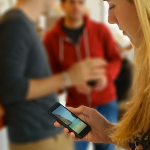
How important is Facebook really? The answer may come soon after April 12, when the social network releases Home to Google Play. The Android add-on usurps the homescreen, putting interactions/people first and pushes apps to the background. This, ah, Home invasion means potential trouble for Apple and Google, but in vastly different ways. Apps anchor both their platforms, curated content and the digital lifestyles users adopt. Facebook bets that between the choice of both ways, human relationships matter more.
For either the fruit-logo company or search and information giant, another question is perhaps more significant: Is Facebook's mobile experience already good enough? Related: Do most users want to be enmeshed in a constant stream of social updates and interactions most of the time? Affirmative answer to either, or both, spells trouble for the platform developers but most worrisome for Apple, for which Facebook Home affronts and condemns the entire business model.
HTC First phones Home

Well, the rumors were false. Facebook didn't release a phone today, not that I'm surprised. There are reasons why we write so few rumor stories here at BetaNews -- they often are false. "We're not building a phone. We're not building an operating system", CEO Mark Zuckerberg said early this afternoon. But the social network has launched an OEM program for the new Facebook Home, which displaces the default Android start screen. HTC is first partner. Aptly named then, the smartphone is called HTC First.
Preorders start today, and the device will be available exclusively from AT&T, in four colors (black, pale blue, red and white), on April 12. Facebook Home, which also will be downloadable same day for HTC One X and One X+ and Samsung Galaxy S III and Note II, is First's default experience. Essentially, the social network becomes primary user interface on top of Android.
Gartner says the PC has no future

Today, Gartner offers grim prognostications for the PC's future, which is not surprising. That the analyst firm took so long disturbs and reveals much about how all these consultants seek to preserve client contracts before anything else. I've warned for years that connected-devices would diminish the personal computer's relevance, much like the mainframe's decline three decades ago. The PC era is over, as I asserted here 26 months ago. On Halloween 2008, I asked in a Microsoft Watch post: "Will your next PC be a smartphone?" What took Gartner so long? The "new device religion" analysis still misses the mark, too.
Following IDC's lead, Gartner now combines PCs, smartphones and tablets into a single forecast. By that measure, in 2012, Android worldwide device shipments (497 million) exceeded Windows (346.5 million) and will more than double (to 1.07 billion) by 2014. Analysts warn the operating system that defined the PC era will struggle with Apple iOS and OS X to be the second dominant platform. By many measures, the circumstance looks grim for Microsoft and Windows, and that's already the popular sentiment today among blog posts and news stories about Gartner's forecast. Don't believe them.
LG's Optimus G Pro lands in Japan at NTT DOCOMO
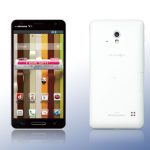
On Thursday, LG announced that the Optimus G Pro, the company's Android flagship smartphone, is now available at Japanese carrier NTT DOCOMO. In mid-January, NTT DOCOMO was the first to reveal the handset, a number of important specifications and its release date -- April 2013.
Unlike its international sibling which sports a 5.5-inch panel, the NTT DOCOMO variant of the Optimus G Pro comes with a smaller 5.0-inch IPS display. The resolution is the same -- 1080 by 1920 but the density is higher -- 440 ppi (pixels per inch). NTT DOCOMO originally revealed that the Optimus G Pro will ship with a 1.7 GHz quad-core Qualcomm Snapdragon S4 Pro processor, but today LG said that in fact the newer and faster, still Qualcomm-made, 1.7GHz quad-core Snapdragn 600 processor is used instead.
Mozilla and Samsung team up to kill Chrome mobile

Say, Google, do you feel a sharp burning sensation in your back? That's the knife Samsung just plunged in. Ouch! The twisting motion must really hurt.
Mozilla and Samsung are collaborating on a new mobile web browsing engine, Servo, which success would offer huge benefits to both companies. Apple and Google dominate mobile devices with their respective WebKit browsers, largely shutting out Firefox from the most important device category since the PC. Incumbency is an advantage, with browsers preinstalled on Android and iOS. Users must download rival products, and many don't. Meanwhile the South Korean electronics giant accounted for nearly 43 percent of all Android smarthphone sales in fourth quarter, according to Gartner. The company controls the broader user experience via TouchWiz UI, but Google controls the browser.
Jelly Bean closes in on Ice Cream Sandwich

Jelly Bean may be the newest sweet in the family, but it is steadily gaining ground against its older brothers. Combined, Android 4.1 and Android 4.2 reached a 25 percent distribution level in the green droid realm, based on the number of devices accessing Google Play during the 14 days ending April 2.
Starting this month, Google has decided to alter how the data is collected. Google says: "Beginning in April, 2013, these charts are now built using data collected from each device when the user visits the Google Play Store. Previously, the data was collected when the device simply checked-in to Google servers". Why? Because the company considers the new collection method to be more accurate and that it best represents "users who are most engaged in the Android and Google Play ecosystem".
Will you buy Samsung Galaxy S4?

Now that some carriers have started taking preorders, time is to ask whether or not you will buy Samsung's new flagship smartphone. The South Korean consumer electronics giant will offer the handset from 327 carriers in 155 countries, later this month.
Ian Fogg, IHS Screen Digest principal analyst, predicts that Galaxy S4 will be huge -- extending Samsung's "market lead from 4 to 11 percentage points over the next largest handset maker. Globally, Samsung will ship 29 percent of all mobile phones in 2013".
HTC One comes to AT&T and Sprint
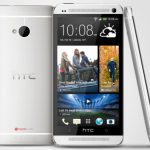
On Tuesday, U.S. mobile operators AT&T and Sprint revealed important details concerning the availability of the HTC One. Starting Thursday, April 4, the device is offered for pre-order on AT&T, while Sprint subscribers have to wait another day. At both carriers sales start April 19.
Pricing is conservative, as on a two-year contract the HTC One in 32GB trim runs for $199.99 at both AT&T and Sprint, similar to the BlackBerry Z10 (on AT&T) or the 16GB Apple iPhone 5 -- both of which come with half the storage capacity. Available colors for the HTC One include black and silver. On AT&T, customers that pre-order the device also get an HTC Media Link HD wireless HDMI adaptor for free.
Samsung and Sprint dim iPhone 5's launch-sales glow
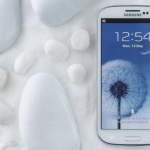
Only T-Mobile can save iPhone now. Apple's U.S. market share, as measured by smartphone operating system, retreated in February, according to data Kantar Worldpanel ComTech released today. With the iPhone 5 initial release sales glow gone, and a rapidly saturating market for a product feature set now three models old, share isn't sustainable. Meanwhile, Android gains -- as does Windows Phone.
iPhone share, based on sales, fell to 43.5 percent for the three months ended in February. That's down from 45.9 percent in January and from 47 percent a year earlier. By comparison Android is up -- to 51.2 percent from 49.4 percent sequentially and 45.4 percent annually. By the same reckoning, Windows Phone rose to 4.1 percent from 3.2 percent and 2.7 percent share.
The potential success or calamity of Facebook phone

The notion of a Facebook phone has certainly lingered for a few years now -- the concept reached a point of half-hearted fruition in the HTC ChaCha and Salsa in 2011, but neither really embodied the true potential of a Facebook phone. They were much more of "throw and see what sticks" devices -- with the only tangible evidence of deeper Facebook integration being the Facebook button on the devices’ fronts.
Much has changed in nearly two years: Facebook’s Open Graph, the acquisition of Instagram and the introduction of Facebook Camera and Messenger applications, among others. Perhaps the most strident progression Mark Zuckerberg’s social network has made in the past two years is reaching 1 billion active users. And counting. That’s approximately one in seven people in the world, and an even larger proportion if accounting for the developed world alone.
HERE Drive Beta disappears from the Nokia Collection on Windows Phone

HERE Drive Beta, Nokia's navigation app for Windows Phone, is currently nowhere to be found inside the company's exclusive app collection for Lumia devices. A number of users report that the problem occurs both for new smartphones or after factory resetting another. HERE Drive Beta is missing, despite the app being previously available.
I can attest to that latter scenario after performing a factory reset yesterday on my Lumia 920. Heading to the Store to install the app (practically to update Nokia Drive to HERE Drive Beta) now results in very-cryptic error code, 805a0194, whereas performing a manual search lists HERE Maps instead, among other results.
Recent Headlines
BetaNews, your source for breaking tech news, reviews, and in-depth reporting since 1998.
© 1998-2025 BetaNews, Inc. All Rights Reserved. About Us - Privacy Policy - Cookie Policy - Sitemap.